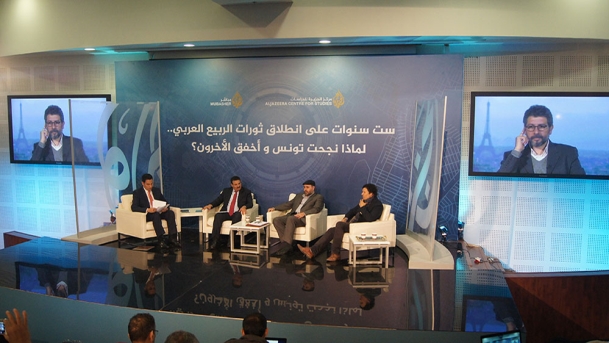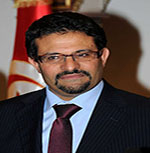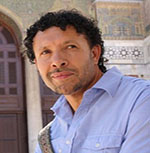
"Six years after the Arab revolutions: Why Tunisia succeeded while others failed?"
Doha, 17 January 2016
Background
After the ousting of Former Tunisian President Zine El Abidine Ben Ali on 14 January 2011, the Tunisian revolution followed a constitutional approach, beginning with parliamentary elections that brought three political parties to power in what became known as the "Troika" experience. As the constitution of the Second Republic was passed, and legislative and presidential elections were held in 2014, Tunisia underwent a momentous transitional process and started a phase of enhancing its democratic experience.
Six years after the revolution, the Tunisian experience is now marked by stability as a result of a political consensus in which politicians have agreed on a set minimum of cooperation. The country witnessed its first coalition experience when the Islamic Ennahda Party and two secular parties, the Congress for the Republic and the Coalition for Work and Freedoms, came together. It then witnessed its second coalition experience with a wider political base comprising four parties whose frontrunners are Nidaa Tounes and the Ennahda Party. Regardless of the nature of these coalitions, and whether they will endure successive challenges to the Tunisian experience, they have demonstrated a level of maturity in dealing with public affairs. They also show the political pragmatism that spared Tunisia of devastating political upheavals.
However, the success of the Tunisian experience is likely to be compromised given the floundering economy and the enormous crisis coupled with continuous security threats and regional intricacies.
Discussing the Tunisian experience and explore its successes and failures in a context comparing it to other Arab Spring experiences will be:
 |
Dr. Ziad Majed Professor of Political Science at the American University of Paris.
|
 |
Dr. Tarek al-Zumar Chairman of the Building and Development Party in Egypt. |
|
|
Professor Larbi Sadiki Professor at the University of Qatar.
|
 |
Dr. Rafik Abdessalem Former Tunisian Foreign Minister.
|
